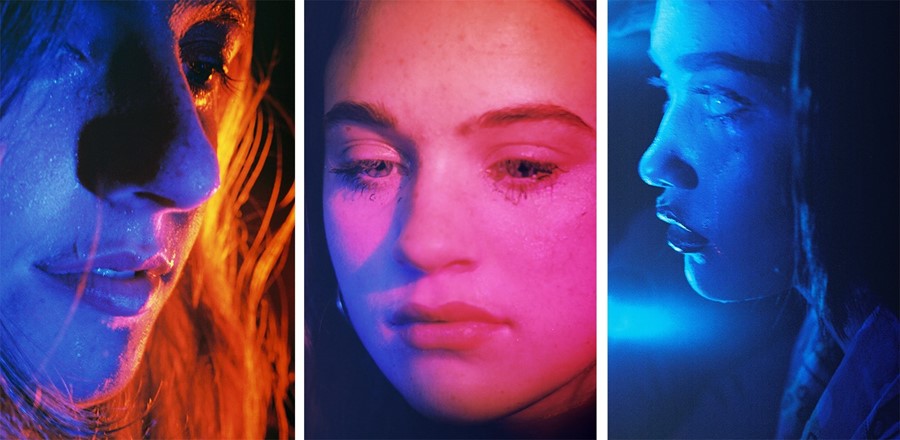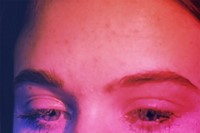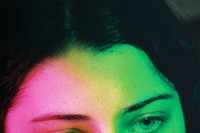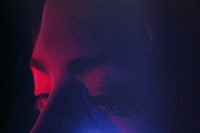As her new photo exhibition 24 Hour Psycho opens in San Francisco, AnOther speaks to the artist to discuss the paradoxical power of finding strength in sadness
Petra Collins’ art – photography, performance, film and installation – has consistently focused on depicting her own experiences and her own world through collaboration with friends. As a teenager, she took pictures to explore and better understand adolescence, using the mechanics and output of a camera as a coping mechanism. Sharing and collaborating has been a fundamental part of her curatorial work too, through which Collins has brought attention to whole new movement of young female artists: a glitter-loving, habitually digital collective who have featured in Collins’ group productions such as Pussy Pat, which took place in Brooklyn in 2014, or Literally bye and Fuckboifunderal, at Miami Basel 2014 and 2015 respectively.
Now, though still only in her early 20s, her experiences and her world have shifted significantly. The normcore feminist is now a household name. In the past few months, for example, she walked in Gucci's A/W16 show during Milan Fashion Week; shot tween idol Selena Gomez for the cover of Wonderland magazine, and appeared in the new season of hit show Transparent. Yet, she still describes herself primarily as an artist and curator – albeit one who refuses to work within the typical confines of creativity.
On April 2, Collins opens a rare solo exhibition, 24 Hour Psycho, comprised of her own photography work (her last was Discharge in New York, in 2014) at the Tenderloin outpost of Ever Gold Projects in San Francisco. Undoubtedly with the fame comes great expectations, and a host of critics waiting to unravel her brand of feminist art. How does she deal with that? “I face it by learning and trying new things… basically just being a human being,” she laughs.
Collins’ art, with its hyperfeminine, Lolita-esque aesthetic, might not be for everyone, but it is highly communicative for a lot of young women. In conversation, she is genuinely open and willing to discuss various issues that affect her and her peers in a direct way – it’s perhaps something the art world isn’t used to. Either way, Collins’ voice is loud in the ongoing, constantly evolving conversations on feminism and women’s issues, and she’s worked hard to raise it to that volume. Ahead of her opening, we ask her about her process, the inspiration behind the show and the systems that are bigger than us.
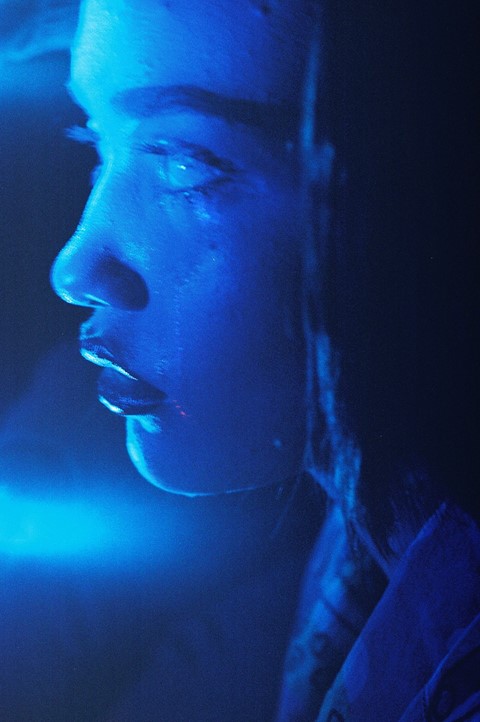
On the inspiration for 24 Hour Psycho…
"I’m showing a new series of portraits I've been taking over the last year, they are intimate portraits of girls and women crying. The show’s title, 24 Hour Psycho, has nothing to do with Douglas Gordon or Hitchcock actually, it's inspired by a weird encounter my friend Carlotta and I had. We saw a sign for a '24hr Psychic', but somehow we interpreted it as '24 Hour Psycho', and that is how that name stuck to me, and is the reason I’ve also created a neon for the show. I thought it perfectly described the feeling of, and the perception of, being a young woman today. The constant battle within oneself, having to balance oppositional ideals of virgin, whore, mother. I was depressed at a very young age – mental illness runs in my family, especially on the female side. My mother struggled with it her entire life and one thing she told me as a young girl that really stuck with me was “it’s okay to be sad”. This was a big deal for me because it was something that I, as a young girl, didn’t feel I had the agency to express, that I couldn’t be strong and sad and female at the same time; that being sad was passive, it was giving up, it was being weak. With this series I wanted to create colorful, loud, almost sublime images of emotion."
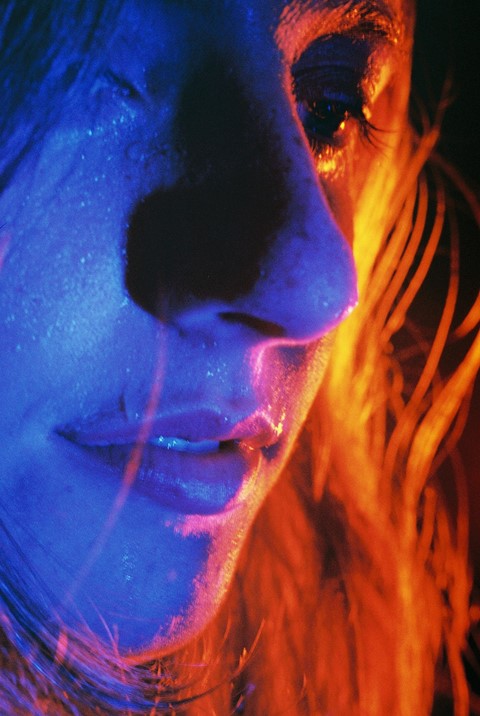
On her working process…
"I usually shoot in groups because it makes it easier for me to deal with lighting etc (one girl holds the lights, one girl deals with music, the other girls support the one girl I’m shooting) but I think it also makes for a great experience. Just being with a group of girls and experiencing sadness together: it’s a pretty powerful thing.
I’m a pretty passive shooter – again this is why I like working with a group, because they can take over – I am just one person with a camera and they direct the mood and direction I go in. I just show them where to point my spotlights, but that’s about it."
On depicting girlhood…
"It’s so important for women to create images of women, or any group at that. We live in such an image-heavy world that not seeing yourself in that landscape can really make it tough to feel human, to feel like you are part of the world. My feelings are always changing, and as I grow I am constantly learning. That’s something that I always try to explain to people; my images are an evolution, they are not a permanent state and they are also not a representation of everyone. I am just one person, and a white cis girl at that, so I definitely cannot represent everyone, and do not try to at all. I am just here to do want I can, and that’s obviously not representing the full scope of feminism."
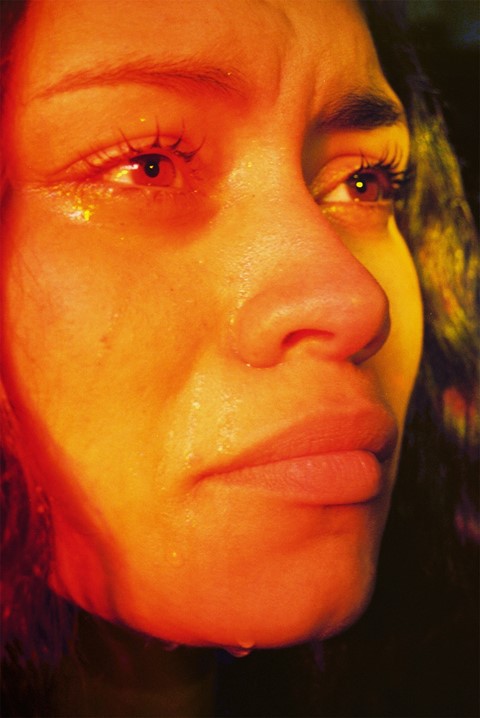
On fame…
"I am very fortunate to be at this point in my life. It’s hard sometimes to get time to myself, but I'm trying. Basically, I’m just thankful I get to take photos all the time. It is the only thing that keeps me sane, even if it's not always my artwork. Living in America is so crazy. I try to use my voice and audience as much as I can for things like Planned Parenthood, because I think that this generation has a lot of power to change things for good."
On the art world and images of women…
"I believe viewers are entitled to their own interpretation of an image, but I think the way we present these images has a lot to do with that. The art world is so archaic and boring, but we have so many different platforms now to view and host art. Especially with Instagram and Tumblr (for example, the Art Hoe Collective) we can create our own spaces for these images, and therefore house new thoughts."
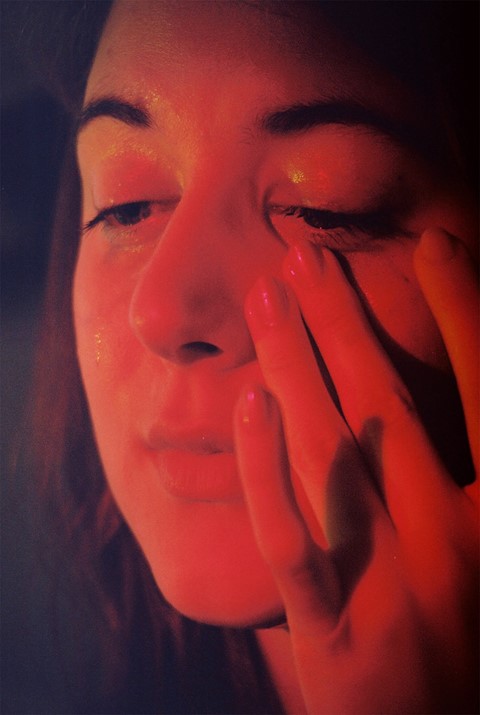
Petra Collins, 24 Hour Psycho, runs from April 2 until April 30, 2016.
